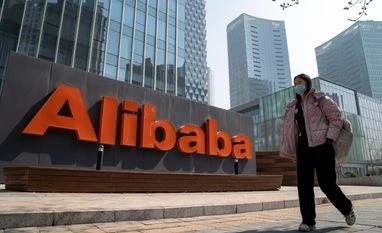Alibaba Group Holding missed analysts' estimates for quarterly sales on Friday, as lingering economic uncertainty sapped consumer spending in China and weighed on the e-commerce giant's domestic business.
Its U.S.-listed shares were up 3.3% in pre-market trading, however, as it reported an adjusted profit of 15.06 yuan per American Depository Share, beating estimates of 14.88 yuan.
Chinese consumers have sharply cut back on spending, especially on discretionary items, as the world's second largest economy struggles to pick up pace amid a property sector crisis and heightened youth job insecurity.
That has knocked retail sales, which remain pressured even as major vendors like Alibaba and JD.com dole out promotions and discounts. JD.com on Thursday also missed estimates for quarterly revenue.
Alibaba is facing stiff competition from discount-based retailers such as PDD Holdings' Pinduoduo and ByteDance-owned Douyin, which have wooed thrifty shoppers with rock-bottom prices on everything from headphones to sweaters.
Alibaba reported revenue of 236.50 billion yuan ($32.72 billion) for the second quarter ended Sept. 30, compared with analysts' average estimate of 240.17 billion yuan, according to data compiled by LSEG.
More From This Section
Revenue from Alibaba's Cloud Intelligence division jumped 7% to 29.61 billion yuan, boosted by the increasing adoption of artificial intelligence technologies.
"Growth in our Cloud business accelerated from prior quarters, with revenues from public cloud products growing in double digits and AI-related product revenue delivering triple-digit growth," Chief Executive Officer Eddie Wu said.
Another bright spot was the growth in Alibaba's international e-commerce unit, where revenue rose 29% to 31.67 billion yuan, thanks to growing demand around the world for lower-priced goods from China.
Alibaba has focused on improving the user experience on its Taobao and Tmall Chinese e-commerce platforms and has been investing in its 88VIP loyalty program, which offers special promotions to its 46 million members.
China's Singles' Day sales period, a nationwide sales promotion event typically seen as a gauge of consumer sentiment, ran from Oct. 14 to Nov. 11 this year, 10 days longer than last year. That resulted in a 26.6% rise in sales across all major e-commerce platforms, according to data provider Syntun.
Alibaba did not release total sales revenue for the period but said 45 brands - including Apple, Haier , Midea, and Xiaomi - each
surpassed 1 billion yuan <$138.62 million> in gross merchandising value (GMV), a common measure of online sales.
In the July-September quarter, China's market regulator issued a statement saying Alibaba had completed three years "rectification" following a record $2.75 billion fine levied in 2021 for monopolistic behaviour, drawing a line under the company's regulatory cloud.
)